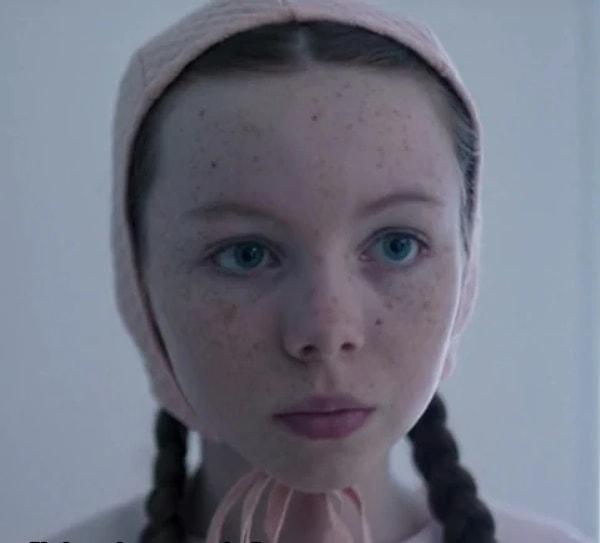This article does not go over plot points or anything that would traditionally be considered a spoiler. But it does provide a closer look at Gilead society, and most of the source material comes from The Testaments.
Hannah Bankole is getting older, and it looks like she's reached puberty. We can't be sure of her age, but estimates put her somewhere around 12-13 years old, which would make sense because the average female is capable of getting pregnant around that time.
It's well known that older, more traditional societies were quick to marry girls off. Many would start hunting down suitors at first blood, eager to reap the many advantages of pushing their daughters out of the nest. Gilead is no different. We've all seen the bright-eyed adolescent faces, one by one, revealed during weddings, many of them no older than 13 or 14.
This is a society obsessed with pregnancy and female oppression. The Sons of Jacob justified the holocaust and slave trade by pointing at the birthrate, declaring that they were only doing what needed to be done to replenish the human race. It was a time of urgency and fanaticism, and it showed.
The female experience changed drastically on every level of society in Gilead. Women were robbed of the freedom to read and write. Their activities were often confined to harsh labor or domestic arts. They were oppressed, largely due to Gilead's prejudice against them.
In an effort to justify their treatment of women, Gilead borrowed from ancient Europe, blaming women for their inability to reproduce. They said it was God's punishment for pornography, sex work, contraception, abortions, and sex before marriage. A society that permitted those things was subject to Old Testament judgment, resulting in the plague of infertility.
Hannah was born into a world where women could be whoever they wanted. But she grew up in a world where women were treated like animals, penned and enslaved, unable to defend themselves. Most were no better than commodities to be passed around and traded. Her experience would've been vastly different from what we are used to.
The series hasn't explored that experience much. Daughters have long been considered prisoners, naive and misled, always off-limits. Children were coveted, so they were secreted away and largely sheltered from the rest of the world.
Fortunately we have been given glimpses of what life would be like for them, and it's time we started learning more. There's only so much they can fit into 10 episodes. We won't really get to see their lives on film.

